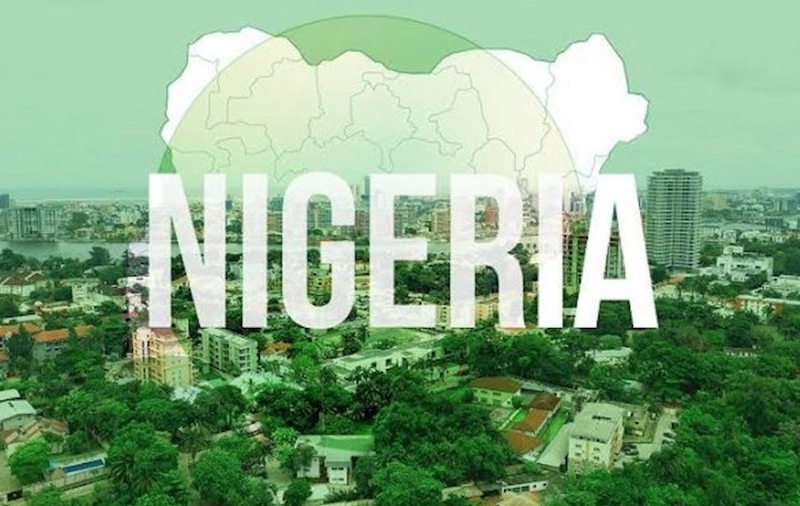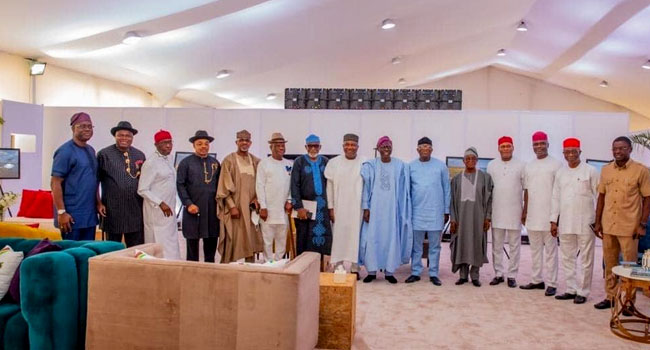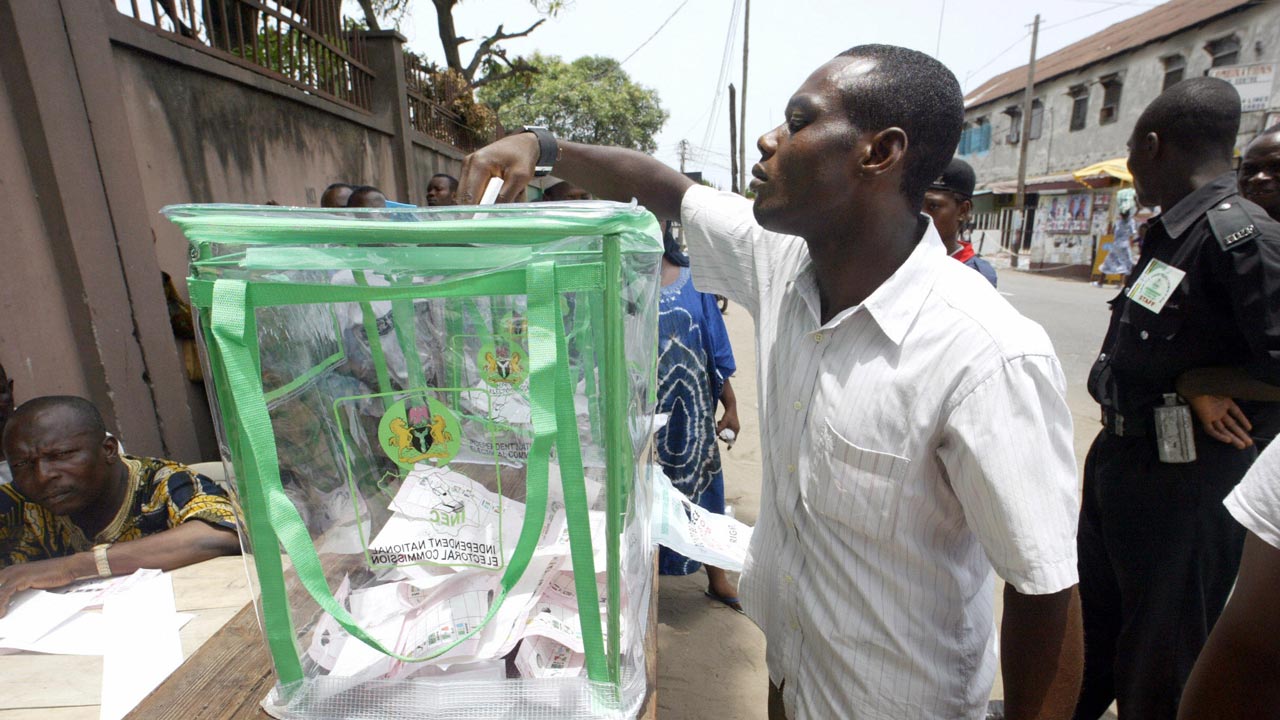The statement by the leader of the Yoruba Cultural Group, Afenifere, Ayo Adebanjo, that the South East should get the next turn at the presidency has ruffled quite some feathers.
This comes at a time when nearly half a dozen of his kinsmen have shown interest and almost nothing seems certain anymore because the two major political parties, having just discovered the virtue in merit, are now disposed to an open race.
The only thing that is certain is where the presidency may not go: the South East. When you hear top politicians talking about power shift, and insisting that the president after Muhammadu Buhari should come from the South for the sake of “fairness and equity”, they are not talking about the country’s most excluded region – the South East.
They are not talking about the region with the least federal presence, the least representation in federal establishments and the least number of states, all of which are a price for a war fought over 50 years ago.
The advocates of power shift have managed to define a geopolitical South that excludes the South East. They speak only of equity in power shift insofar as it means power going to the South West or ‘South South’. Adebanjo bucked the trend, and Edwin Clark has also lent his voice.
In a country where hypocrisy is a political virtue, the mindset of those who preach fairness and equity is governed by the Matthean principle: those who have will have more added to them, so that they can have even more at the expense of the disadvantaged.
That’s why the South West, which in the last 23 years has had 15 years of the first two top positions, currently has six candidates aspiring for another eight years, while the ‘South South’ which has had four years at the top job, has lined up six aspirants as of the time of writing.
And the North, which never fails to disappoint in the politics of benevolence is saying on the one hand that power should shift to the South, and on the other propping up its own candidates to join the race, after about ten and a half years of being at the helm since 1999.
In the All Progressives Congress (APC), for example, the first sign from the North that all the talk about a Southern candidate meant nothing was when the Minister of Justice and Attorney General of the Federation, Abubakar Malami, shelved the idea of being a running mate potentially to a ‘South South’ candidate, fancied at the time to be former President Goodluck Jonathan.
Insiders confided to me this week that, “It was after the Jonathan idea met the brick wall that Malami revived the idea of running for Kebbi governorship. The dead Jonathan project was a clear signal to Malami that given the large crowd of aspirants from the South a northerner might do better at the APC primaries and doom his vice-presidential ambition.”
Let us return to the South East. What is it about the region that makes it so convenient to treat it with spite and malicious negligence?
Some say that the region has to grow up and earn its place: no one hands over power on a platter. That sounds sensible and logical – that is, until we remind ourselves that the whole business of Federal Character, enshrined in Nigeria’s constitution today, was power redistribution served on a platter.
The Federal Character Commission (an elevation of quota system) is a useless bureaucracy costing the country billions of naira. It was improvised by General Sani Abacha in 1996 to help disadvantaged states catch up with the others and to create a sense of belonging. I wonder why the beneficiaries, mostly Northern states, did not think it prudent to earn the privileges bestowed by this crooked system.
How about the argument that the South East does not deserve a shot at presidency at this time because of the inability of Ndigbo to unite around one candidate and pursue a common agenda – that they are masters at the game of group betrayal and disassembling politics?
Those who make this argument cite Senator Orji Uzor Kalu, Senator Eyinnaya Abaribe and Imo State Governor, Hope Uzodinma, who appear to be inclined to candidates outside the zone, as examples of Ndigbo’s penchant for betrayal and backstabbing. Why can’t they rally around any of the 16 Igbo candidates in the race?
If the South East is Nigeria’s capital of disunity, how do the proponents of this argument explain the ambitions of Asiwaju Bola Ahmed Tinubu, Vice President Yemi Osinbajo, Senator Ibikunle Amosun, Governor Kayode Fayemi, and potentially, Pastor Tunde Bakare, who are not only from the South West, but are all members of the same political party?
How do critics of the Igbo quest explain the fact that even though the South West has enjoyed the lion’s share of power in two decades, it is still in the race with a bigger sense of entitlement than any other region? Or why did three other Northern aspirants contest for APC’s ticket against Buhari in the party’s presidential primaries, despite the push for a consensus candidate at the time?
Not done, there are others who would argue that politics is a game of numbers. If the South East does not have the numbers and cannot negotiate with others to its advantage as it did in 1959, why should it – or anyone – blame others for its current misfortune?
That sounds logical, until you cross to other zones, like the ‘South South’, for example, that apart from producing a president, has reaped financial rewards and political benefits, from derivation to special commissions and an amnesty programme, far in excess of its numerical strength.
In the mathematics of a federation, the cold abstraction of numbers sometimes deserves to have a human face. That was why Jonathan became president; that is why Quebec retains its distinct cultural and political identity, despite its union with Canada.
Then, of course, there are those who argue that rotation is pointless because it is simply the crutch of the thieving political elite. Ordinary people up and down the country, North and South, hardly benefit. And when the elite are conspiring to steal, they hardly discuss tribe, religion or region. We should be concerned about what the candidate can – or has done – rather than where he or she is coming from.
That is true. But that truism applies to all six zones in the country. I completely agree that there should be a broader definition of who benefits from power beyond zoning; a need to make power more inclusive, accessible and accountable. But why didn’t that begin in 2013 when Northern elders, determined to remove Jonathan, said, “power rotation was a mark of equity and justice”?
If it’s not good enough to stop former President Olusegun Obasanjo returning to govern as civilian president for eight years after three years as military president, and it’s not strong enough to stop Buhari copying Obasanjo’s example, why should it be the albatross of the South East? In fact, the last time the Southern Forum led by Governors Peter Odili, Chimaroke Nnamani and Victor Attah pressed for power shift in 2007, they capitulated and allowed Obasanjo to hand over to Umaru Shehu Yar’Adua!
In the current calculations about where the next president should come from, perhaps the biggest elephant in the room is the spectre of the separatist agenda in the South East, largely promoted by the Indigenous Peoples of Biafra (IPOB). Separatist-related violence in the South East has claimed hundreds of lives, ruined lives and left the region devastated.
Those who oppose power shift to the region argue that an Igbo president after years of violent confrontations in the South East, with the political leaders looking the other way most of the time, would amount to rewarding rebellion, and who knows how or where it would end?
That is frighteningly seductive. Anyone who has the faintest idea of what has been going on in the South East, especially in the last four or five years, should be worried. But perhaps we should pause and examine the conditions under which three Nigerian presidents – Obasanjo, Jonathan and Buhari – emerged in the last three decades.
Obasanjo emerged on the back of widespread violent disturbances, especially in the South West, after the annulment of the 1993 election and the death of MKO Abiola. Obasanjo, a Yoruba president, was the North’s peace offering to the South West, as Jonathan was to the implacable ‘South South’ and Buhari to the North – all of this regardless of the near ungovernable state of these regions when these presidents emerged and allegations of complicity against one of the candidates.
We can argue all day about being strategic, about optics or the need to avoid sending the message that violent rebellion pays and we would be right. But if “justice and equity” are the reasons why other regions have had their turn as tokens of good faith and reconciliation, then we cannot justify a different treatment for the South East. And I don’t have to have a dog in the fight to say so.
It’s time to end the obfuscation and pussyfooting and to call this spade by its name: Nigeria must stop treating the South East as if it does not matter and still hope to find peace.
Ishiekwene is the Editor-In-Chief of LEADERSHIP



